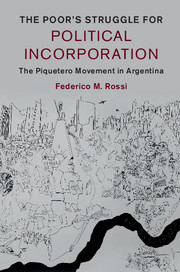The Distinguished Contribution to Scholarship Book Award in Political Sociology:
The deadline for nominations is March 15, 2018.
This award is given annually to the outstanding recent book in political sociology (we will not consider edited books for this award). To be eligible, the book must have a 2017 copyright date. The selection committee encourages self-nominations or suggestions of work by others. Nominations from publishers will not be accepted. To nominate a book for this award:
(1) Send a short letter (via e-mail) nominating the book to each committee member below and

